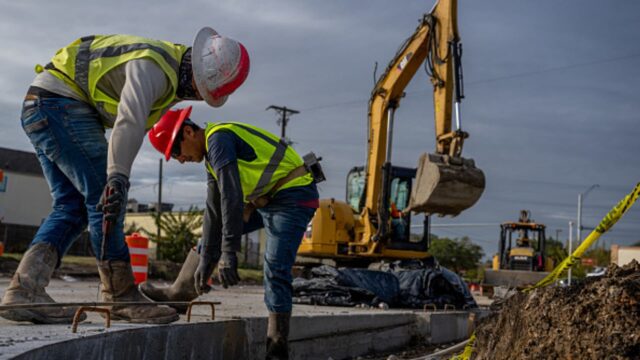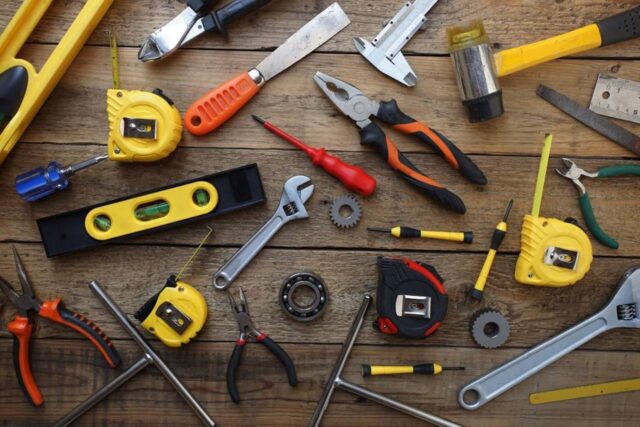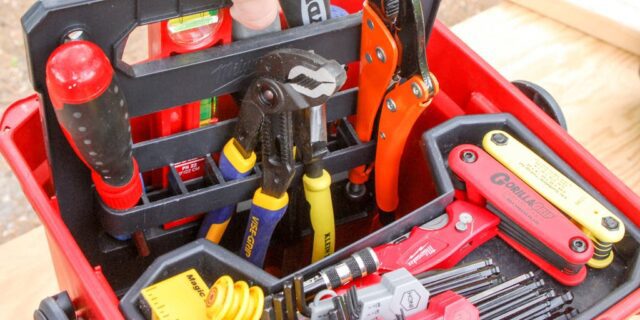
Construction is a more competitive space than ever before. Amidst the cost-of-living crisis and chronic staff shortages in the industry, winning contracts can take time, commitment, and absolute confidence in your services.
Building your professional reputation is no easy feat, but it certainly pays off in the long run when it comes to construction. Whether you’ve only just started working in the industry or you’re distributing new equipment to your staff, it’s always worth knowing how to maintain your kit.
Why is it so important to look after your tools?

No matter your niche, the quality of your work can only be as good as your tools. While you might not be able to blame your tools for poor performance, having the right equipment and maintaining it correctly certainly contributes to the overall quality of work you provide.
If you’re using power tools within a professional setting, you’ll have certain regulations to adhere to. For example, the Provision and Use of Work Equipment Regulations 1998 states that you must:
- Maintain all working equipment in an efficient state, in working order, and in good repair
- Keep up-to-date records for any machinery with a maintenance log
- Allow maintenance operations on work equipment to be carried out safely
How to effectively maintain tools and equipment

1. Store them properly
It’s important to protect your tools when they’re not needed. The way you store your equipment determines both its safety and longevity, especially if you’re frequently on the move. A lockable toolbox, for example, could prevent an opportunist thief from stealing your prized possessions.
Likewise, leaving your equipment out on a workbench could expose it to dirt, debris, and damp conditions. Over time, damp could cause your tools to rust, reducing their efficiency or even risking permanent damage. Look after your tools by keeping them in a secure, dry, and cool place when they’re not in use.
2. Use lubricants and greases
Where required, using additives helps you maintain your equipment. For example, using specialist greases promotes the efficiency of moving parts within tools. By promoting smooth operation within dynamic components, lubricants help to prolong operational life too.
Before you use an additive on your equipment, make sure it’s safe and compatible. Certain lubricants might not be suitable for your specific working environment or the materials that require lubrication. If you’re unsure, always refer to the official manufacturer’s guidelines.
3. Use equipment for the right purpose

While it’s possible to benefit from the versatility of a multitool within your toolbox, it’s crucial to only use tools as intended. Using a piece of specialist equipment against guidance could counter your productivity – or even worse, break it beyond repair.
What’s more, your insurance might not cover accidental damage to equipment if it was revealed that you were using it for anything other than the purpose for which it was designed. As a matter of urgency, follow best practices by only using appropriate tools for the task at hand.
4. Keep on top of cleaning
Dust, dirt, and grime can have more of an impact on performance than you might expect. Dirt ingress can impact the efficiency of moving parts, switches, sensors and more, potentially leading to critical errors on the job.
Try to clean your tools regularly and effectively, using only the products and solutions recommended by the manufacturer.
Conclusion
Equipment maintenance is crucial in any industry but could make the difference between profits and failure in construction. Always inspect your tools regularly, making detailed notes of any faults, repairs, or errors. And when it comes to maintenance, only ask a trusted professional to look after your high-spec equipment.








